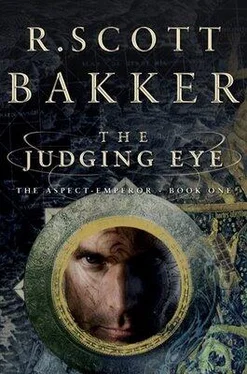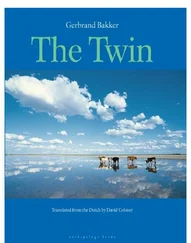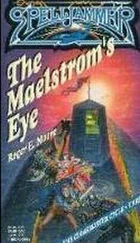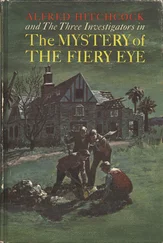R. Bakker - The Judging eye
Здесь есть возможность читать онлайн «R. Bakker - The Judging eye» весь текст электронной книги совершенно бесплатно (целиком полную версию без сокращений). В некоторых случаях можно слушать аудио, скачать через торрент в формате fb2 и присутствует краткое содержание. Жанр: Фэнтези, на английском языке. Описание произведения, (предисловие) а так же отзывы посетителей доступны на портале библиотеки ЛибКат.
- Название:The Judging eye
- Автор:
- Жанр:
- Год:неизвестен
- ISBN:нет данных
- Рейтинг книги:5 / 5. Голосов: 1
-
Избранное:Добавить в избранное
- Отзывы:
-
Ваша оценка:
- 100
- 1
- 2
- 3
- 4
- 5
The Judging eye: краткое содержание, описание и аннотация
Предлагаем к чтению аннотацию, описание, краткое содержание или предисловие (зависит от того, что написал сам автор книги «The Judging eye»). Если вы не нашли необходимую информацию о книге — напишите в комментариях, мы постараемся отыскать её.
The Judging eye — читать онлайн бесплатно полную книгу (весь текст) целиком
Ниже представлен текст книги, разбитый по страницам. Система сохранения места последней прочитанной страницы, позволяет с удобством читать онлайн бесплатно книгу «The Judging eye», без необходимости каждый раз заново искать на чём Вы остановились. Поставьте закладку, и сможете в любой момент перейти на страницу, на которой закончили чтение.
Интервал:
Закладка:
He suspects, the secret voice whispered.
Suspects what?
That you are make-believe.
The last of the cacophony faded, until only the oceanic call of the Horns remained, thrumming so deep that Kelmomas's tunic seemed to tingle against his skin. Then they too trailed into nothing.
Ear-ringing silence. With a cry from Thopsis, the whole world seemed to kneel, including the Exalt-Ministers. The peoples of the New Empire fell to the ground, fields of them, then slowly lowered their foreheads to the hot marble-every soul crowded into the Imperial Precincts. Only the Shriah, who knelt before no man save the Aspect-Emperor, remained standing. Only Uncle Maithanet. When the sun broke across the stair, his vestments flared with light: A hundred tiny Tusks kindled like fingers of flame. Kelmomas blinked at their brilliance, averted his eyes.
His mother led him down the steps by the hand. He clapped after her with his sandalled feet, giggled at her frown. They passed down the aisle opened between the Exalt-Ministers, and he laughed some more, struck by the absurdity of them, all shapes and ages and sizes, grovelling in the costumes of kings.
"They honour you, Kel," his mother said. "Why would you laugh at them?"
Had he meant to laugh? Sometimes it was hard to keep count.
"Sorry," he said with a glum sigh. Sorry. It was one of many words that confused him, but it never failed to spark compassion in his mother's look.
At the base of the monumental stair, a company of green-and-gold-dressed soldiers awaited them: some twenty men of his father's hallowed bodyguard, the Hundred Pillars. They fell into formation about the Empress and her child, then, their shields bright and their looks fierce with concentration, they began leading them through the masses and across the Scuari Campus toward the Andiamine Heights.
As a Prince-Imperial, Kelmomas often found himself overshadowed by armed men, but the walk unnerved him for some reason. The smell was comforting at first: the perfumed muslin of their surcoats, the oils they used to quicken their blades and soften the leather straps of their harness. But with every step, the bitter-sweet bitumen of unwashed bodies came more and more to the fore, punctuated by the reek of the truly wretched. Murmurs rose like a haze about them. "Bless-bless-bless," over and over, in a tone poised between asking and giving. Kelmomas found himself staring past the towering guards, out across the landscape of kneelers. He saw an old beggar, more husked than clothed, weeping, grinding his face against the cobbles as though trying to blot himself out. He saw a girl only slightly younger than himself, her head turned in sacrilege, so that she could stare up at their monstrous passage. On and on the prostrate figures went, out to distant foundations.
He walked across a living ground.
And then he was among them, in them, watching his own steps, little more than a jewelled shadow behind a screen of merciless, chain-armoured men. A name. A rumour and a hope. A god-child, suckled at the breast of Empire, anointed by the palm of Fate. A son of the Aspect-Emperor.
They did not know him, he realized. They saw, they worshipped, they trusted what they could not fathom.
No one knows you, the secret voice said.
No one knows anyone.
He glanced at his mother, saw the blank stare that always accompanied her more painful reveries.
"Are you thinking of her, Mommy?" he asked. Between the two of them, "her" always meant Mimara, her first daughter, the one she loved with the most desperation-and hated.
The one the secret voice had told him to drive away.
The Empress smiled with a kind of sad relief. "I worry for your father and your brothers too."
This, Kelmomas could plainly see, was a lie. She fretted for Mimara-even still, after all he had done.
Perhaps, the voice said, you should have killed the bitch.
"When will Father return?"
He knew the answer at least as well as she did, but at some level he understood that as much as mothers love their sons, they loved being mothers as well-and being a mother meant answering childish questions. They travelled several yards before she replied, passing through a fog of pleas and whispers. Kelmomas found himself comparing her to the countless cameos he had seen depicting her in her youth-back in the days of the First Holy War. Her hips were wider, perhaps, and her skin not so smooth beneath the veneer of white paint, but her beauty was legendary still. The seven-year-old could scarce imagine anyone more beautiful.
"Not for some time, Kel," she said. "Not until the Great Ordeal is completed."
He nearly clutched his breast, such was the ache, the joy.
If he fails, the secret voice said, he will die.
Anasыrimbor Kelmomas smiled what seemed his first true smile of the day.
Kneelers all around, their backs broken by awe. A plain of abject humanity. "Bless-bless-bless," rising like whispers in a sick-house. Then a single, savage cry: "Curse! Curse!"
Somehow a madman managed to plunge past the shields and blades, to reach out, punctured and failing, with a knife that reflected shining sky. The Pillarian Guardsmen traded shouts. The crowds heaved and screamed. The young boy glimpsed battling shadows.
Assassins.
CHAPTER ONE
Sakarpus upon the high wall the husbands slept, while 'round the hearth their women wept, and fugitives murmured tales of woe, of greater cities lost to Mog-Pharau…
— "The Refugee's Song," The SagasEarly Spring, 19 New Imperial Year (4132 Year-of-the-Tusk), The Kathol Passes
The tracks between whim and brutality are many and inscrutable in Men, and though they often seem to cut across the impassable terrain of reason, in truth, it is reason that paves their way. Ever do Men argue from want to need and from need to fortuitous warrant. Ever do they think their cause the just cause. Like cats chasing sunlight thrown from a mirror, they never tire of their own delusions.
At the behest of their Holy Aspect-Emperor, the priests of the Thousand Temples harangued their congregations, and the Judges of the Ministrate scoured the land, seeking out and destroying all those who would either dispute the Truth or choose avarice over the mortal demands of the darkness to come. Everyone, whether caste-slave or caste-noble, was taught the Great Chain of Missions, how the words and works of each made possible the words and works of the other. They learned how Men, all Men, warred all the time, whether tilling fields or loving their kin. All lives, no matter how humble, were links that either fortified the Great Chain or impaired it, leading to the First Ring, the link from which the world itself hung: the Holy War against the apocalyptic designs of the Consult…
Or as it came to be called, the Great Ordeal.
Never, not even in the days of Far Antiquity, had the world seen the assembly of such a host. Ten years were devoted to its preparation. To prevent the resurrection of the No-God, they had to destroy his foul slaves, the Consult, and to destroy them, they had to march the length of Eдrwa, from the northern frontiers of the New Empire, across the Sranc-infested Wilds of the Ancient North, all the way to their stronghold, Golgotterath, which the Nonmen had called Min-Uroikas in days long dead, the Pit of Obscenities.
It was a mad endeavour. Only children and fools, who confused tales of war with war itself, could think the task simple. For them, war was battle, and they always squinted in surprise when veterans spoke of latrines and cannibalism and gangrenous feet and so on. Even the most illustrious knights required food, as did the horses they rode, as did the pack mules that carried the food, as did the slaves who served it. Food was required to transport food-the problem was as simple as this. Without some intensive system of supply-relays, depots, and the like-the amount consumed would quickly exceed the amount carried. This was why the most arduous battle waged by the Great Ordeal would not be against the Consult legions, but against Eдrwa's own wild heart. The host would have to survive the distance to Golgotterath before it could be tested on the field.
Читать дальшеИнтервал:
Закладка:
Похожие книги на «The Judging eye»
Представляем Вашему вниманию похожие книги на «The Judging eye» списком для выбора. Мы отобрали схожую по названию и смыслу литературу в надежде предоставить читателям больше вариантов отыскать новые, интересные, ещё непрочитанные произведения.
Обсуждение, отзывы о книге «The Judging eye» и просто собственные мнения читателей. Оставьте ваши комментарии, напишите, что Вы думаете о произведении, его смысле или главных героях. Укажите что конкретно понравилось, а что нет, и почему Вы так считаете.












